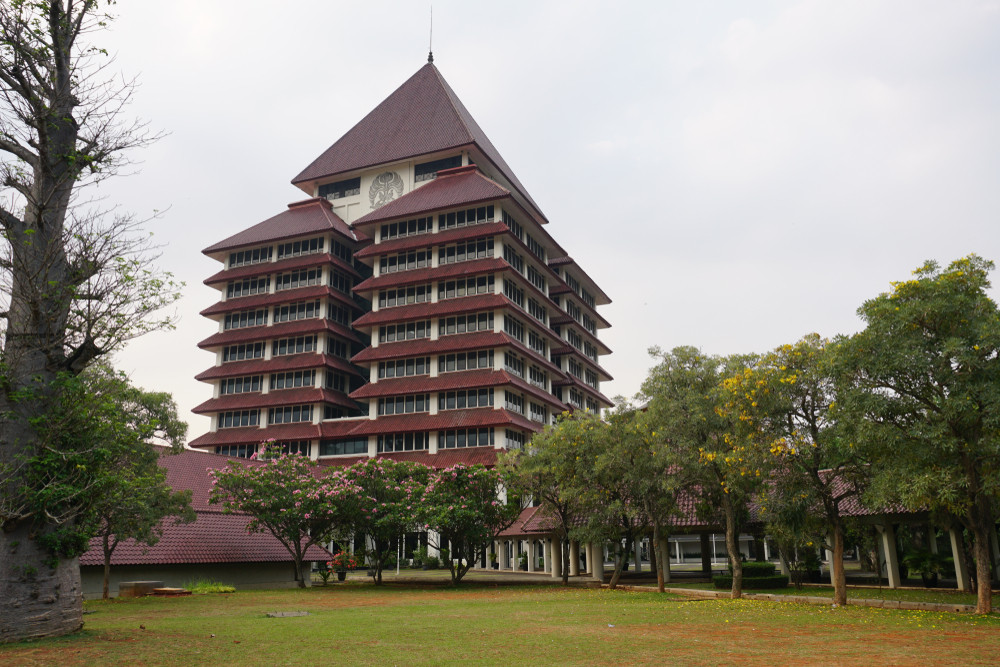Popular Reads
Top Results
Can't find what you're looking for?
View all search resultsPopular Reads
Top Results
Can't find what you're looking for?
View all search resultsUI students file amicus brief on behalf of Papuan protesters charged with treason
The coalition argued that the treason charges were not appropriate and suggested that the authorities who were handling the case had racial biases against Papuans.
Change text size
Gift Premium Articles
to Anyone
T
wo student organizations at the University of Indonesia (UI) have decided to file an amicus curiae – a brief offered by someone who is not party to a case – in support of seven Papuan activists on trial for treason for their involvement in the 2019 antiracism protests in Jayapura, Papua.
The brief was drafted jointly by the UI Student Executive Body (BEM UI) and the UI School of Law Student Executive Body (BEM FHUI).
Earlier this month, prosecutors at the Balikpapan district court in East Kalimantan demanded between five and 17 years of prison for the seven Papuan defendants for their participation in rallies in Jayapura. The protests were in response to a racial abuse incident targeting Papuan university students living in a dormitory in Surabaya, East Java.
The students in the dorm were attacked physically and verbally by security personnel – who reportedly called them “monkeys” – and members of mass organizations who accused the Papuans of refusing to celebrate Indonesia’s 74th Independence Day.
The responding protests in Jayapura started out peacefully but later turned violent and resulted in dozens of injuries and several buildings being damaged.
Read also: Human Rights Watch urges authorities to free Papuan activists on trial for 2019 protests
In a statement on Friday, the student body coalition argued that the treason charges were not appropriate and suggested that the authorities who were handling the case had racial biases against Papuans.
They added that the protests in Jayapura last year were not intended to harm the security and the sovereignty of the nation but instead were peaceful protests to respond to the racist acts in Surabaya.
“All of the perpetrators [of the Surabaya incident] have been held responsible with minimum charges. Meanwhile, prosecutors are seeking to imprison the Papuan [activists] for up to 17 years,” BEM UI and BEM FHUI argued in the statement.
They said the protests were a form of political expression guaranteed by the Constitution and other international human rights instruments under the freedom of speech and expression.
“Therefore, all of [the defendants] have to be freed of all charges, especially treason,” the student coalition said.
Read also: Racism: My experience as a doctor in Papua
BEM UI and BEM FHUI they had been holding public protests to express their view on the matter but had not encountered any issues. “Meanwhile, these Papuan activists were charged with treason for protesting,” they said. “This is a true manifestation of the racial bias that is happening in our law enforcement.”
The students hoped that the court would find that racial biases had influenced the law enforcement personnel who had handled the case.
“We also hope that our amicus brief will be considered discussion material for the judges to reach their verdict,” they said.
This amicus curiae – a Latin term meaning "friend of the court" – was not the first attempt by UI students to highlight what many consider persecution of Papuans for their political activism.
BEM UI recently held a public discussion on racism against Papuans in the legal system. However, the UI administration later issued a statement disavowing the event, saying the discussion did not “reflect the views and attitudes of UI as an institution”.
An alliance of UI lecturers subsequently expressed their support for the discussion and lauded BEM UI for organizing it because it fostered the spirit of free speech among university academics.
Read also: ‘#PapuanLivesMatter’: George Floyd’s death hits close to home in Indonesia
Although amicus briefs are more common in countries that use a common law system, there are also some precedents for the submission of such briefs in Indonesia, which uses a civil law system.
In 2013, for instance, the National Commission on Human Rights (Komnas HAM) filed an amicus curiae in an appeal of the verdict in a case regarding an attack in Cebongan Penitentiary in Sleman, Yogyakarta.
Other parties have submitted similar briefs, including Indonesia Corruption Watch in the case of an acid attack on Corruption Eradication Commission (KPK) investigator Novel Baswedan and the Jakarta Legal Aid Institute (LBH Jakarta) in a blasphemy case involving then-Jakarta governor Basuki Tjahaja Purnama.










